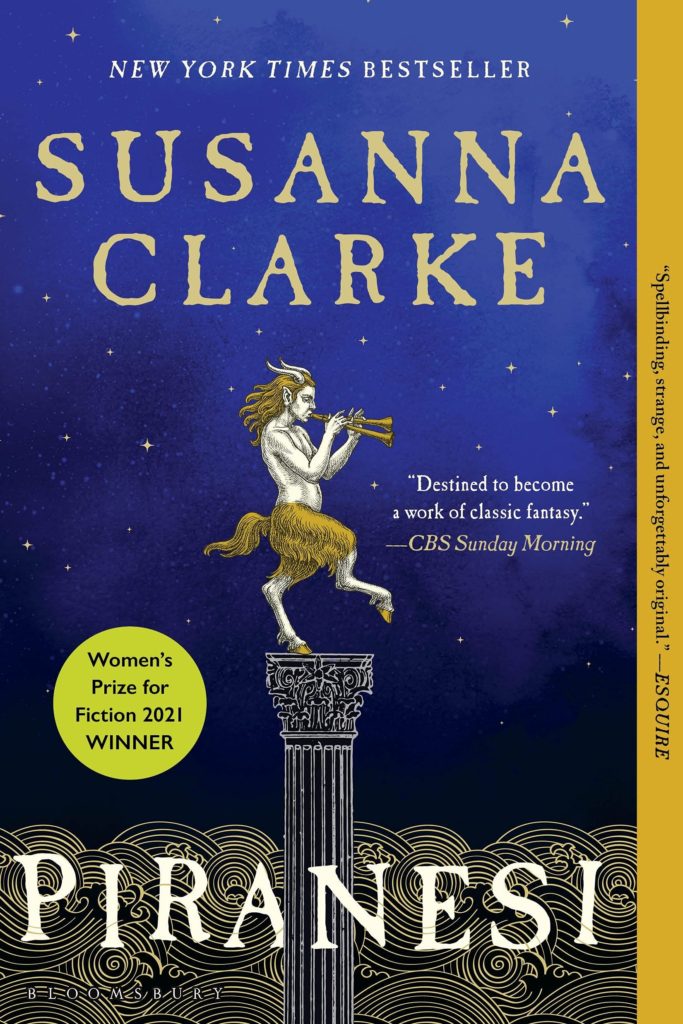
What a strange novel! But what else would you expect from the author of Jonathan Strange & Mr Norrell? This is a brilliant creative exploration of reality.
Summary: A man named Piranesi moves through the rooms of a vast series of buildings. He has mapped the buildings and corridors of the labyrinth where he lives but it’s uncertain where he is and why he is there. Piranesi also produces detailed journals on the statues found in each building, along with the mysteries of the sea tides that swamp different floors. There is one other human that Piranesi encounters, the Other. But the Other only appears once a week and he has secrets that Piranesi slowly pieces together. To say it all comes crumbing down is an understatement.
Once the Other was in the Eighth Northern Hall. A strong Tide from the Northern Halls rose in the Tenth Vestibule, followed moments later by an equally strong Tide from the Eastern Halls in the Twelfth Vestibule. Vast quantities of Water poured into the surrounding Halls, including the one where the Other was. The Waters plucked him up and carried him away, sweeping him through Doors and battering him against Walls and Statues. Several times he was completely immersed, and he expected to drown. Eventually the Tides cast him up on the Pavement of the Third Western Hall (a distance of seven Halls from where he began). That is where I found him. I fetched him a blanket and hot soup made of seaweed and mussels. As soon as he was able t walk, he took himself off without a word. I do not know where he went. (I never really know.) This happened in the Sixth Month of the Year I named the Constellations. Since then the Other has been afraid of the Tides.
Part 2, The Other
Spoiler alert: Well, not a real spoiler, but the man’s name is not Piranesi, this is a name given to him by the Other. And this the fun of Susanna Clarke’s writing. Giovanni Battista Piranesi (1720-1778) was one of the greatest printmakers of the 18th century. He also loved architecture, in particular the grandeur of Rome, and was considered a creative genius. He’s best known for his hundreds of etchings including views of Rome, Pompeii, and his series on “Le Carceri d’Invenzione” or “The Imaginary Prisons.” I can see why the name Piranesi fits. A perfect quote from the 18th century Piranesi, “I need to produce great ideas, and I believe that if I were commissioned to design a new universe, I would be mad enough to undertake it.”
The characters in Piranesi are not the magicians of Susanna Clarke‘s earlier works. There is some of the world-exploration and mystery of Erin Morgenstern’s The Starless Sea, but again it’s not really magic and fantasy, even though there’s some magic realism here.
Perfect for fans of The Midnight Library by Matt Haig.